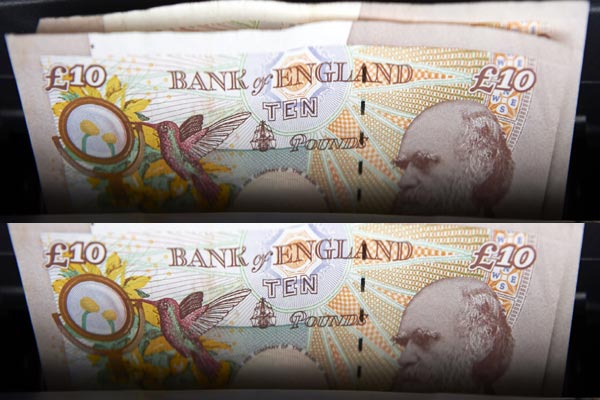Tuesday, 10 November 2015 21:25
 LONDON: Sterling traded near six-month lows against the dollar on Tuesday, as traders looked to upcoming UK labour market data for clues on when the Bank of England might raise interest rates.
LONDON: Sterling traded near six-month lows against the dollar on Tuesday, as traders looked to upcoming UK labour market data for clues on when the Bank of England might raise interest rates.
Most analysts said Wednesday’s numbers, which include average weekly earnings and unemployment figures, would be the main focus for sterling this week.
The BoE is closely watching the labour market as it considers raising rates for the first time since the financial crisis.
But a speech by the British prime minister on Britain’s membership of the European Union also renewed interest in threats to the UK economy posed by a potential “Brexit”.
David Cameron has promised a referendum by the end of 2017 on whether Britain will stay in the EU, but the vote is expected to come some time next year.
Many reckon it could cause enough political uncertainty to weaken sterling and perhaps to force the BoE to keep interest rates on hold.
The BoE last week gave no sign that it was in any hurry to raise rates, and revised down its inflation and growth forecasts.
“Last week’s BoE meeting reaffirmed our cautious view on sterling – the Bank of England is clearly quite uncomfortable with a strong sterling and the impact that has on input prices and inflation,” said Barclays FX strategist Nikolaos Sgouropoulos.
“As a result, should sterling continue to appreciate, there is a clear risk that the bank rate will remain lower for longer.”
Sterling was flat on Tuesday at $ 1.5109, not far from a 6 1/2-month low of $ 1.5027 it reached on Friday after a bumper US jobs report that bolstered the view that the US Federal Reserve would raise interest rates in December.
“The combination of a more dovish BoE and the formal start to Brexit talks may be game-changing for euro/sterling price action; the bar for strong UK data to have a positive impact on sterling is now likely to be higher,” wrote ING currency strategist Viraj Patel in a research note.
Against a broadly weaker euro, the pound was half a percent higher at 70.735 pence.
British government bond prices were little changed but still underperformed against rallying German Bunds, which were boosted by talk that the European Central Bank will further ease policy next month.
The yield spread between the benchmark 10-year gilt and equivalent Bund widened by around 7 basis points to 141 points, its highest since last Thursday, just before the BoE released its quarterly economic outlook.






























